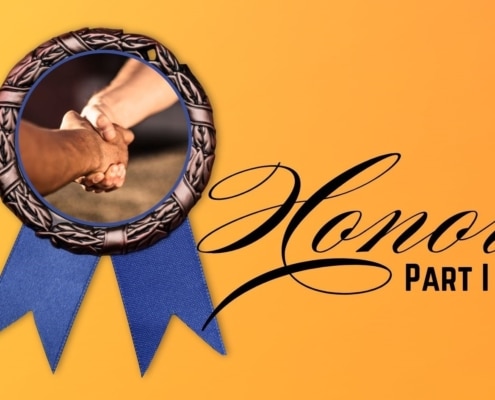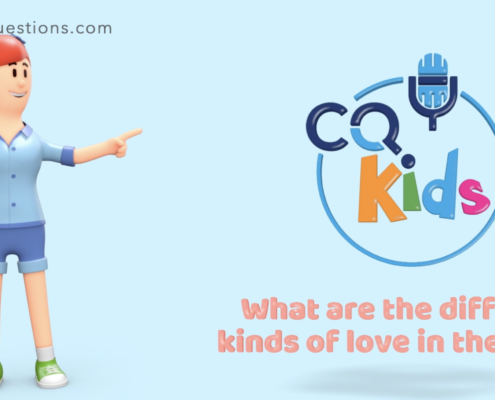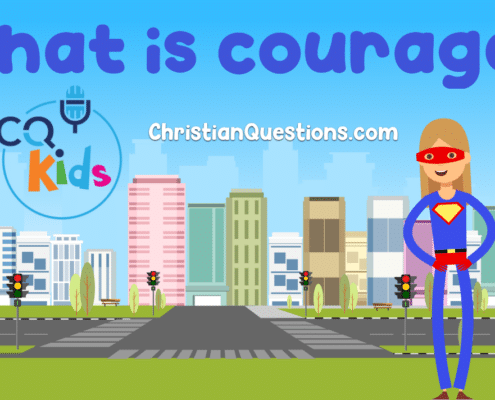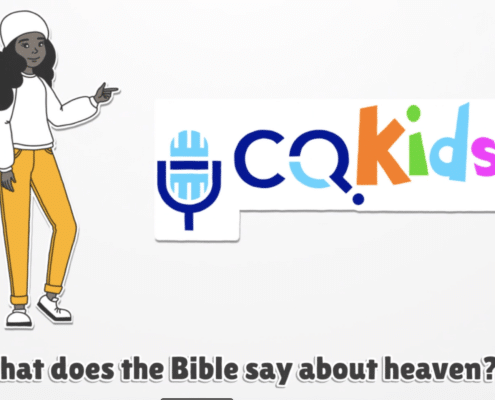VIDEO: How should we pray?
Parents and Bible class teachers, this short, animated video details the fundamentals of praying in an engaging, practical way. Subscribe to our channel at ChristianQuestions.com/YouTube and never miss a new video!
Related Videos
 https://resources.christianquestions.com/wp-content/uploads/2024/04/08133512/nehemiah-screen-shot.jpg
718
1275
Teresa Sutherland
https://resources.christianquestions.com/wp-content/uploads/2024/03/28151014/ChristianQuestions-Logo.png
Teresa Sutherland2024-04-18 00:00:082024-04-19 10:40:38VIDEO: Who was Nehemiah?
https://resources.christianquestions.com/wp-content/uploads/2024/04/08133512/nehemiah-screen-shot.jpg
718
1275
Teresa Sutherland
https://resources.christianquestions.com/wp-content/uploads/2024/03/28151014/ChristianQuestions-Logo.png
Teresa Sutherland2024-04-18 00:00:082024-04-19 10:40:38VIDEO: Who was Nehemiah?
Have We Lost Our Ability to Honor One Another? (Part II)

VIDEO: Have We Lost Our Ability to Honor One Another? (Part II)

Have We Lost Our Ability to Honor One Another? (Part I)

VIDEO: Have We Lost Our Ability to Honor One Another? (Part I)

Can My Marriage Be a “Happily Ever After”?

VIDEO: What are the different kinds of love in the Bible?

VIDEO: Can My Marriage Be a “Happily Ever After”?

VIDEO: What is courage?

Do I Show Up When God Calls, or Do I Run and Hide?

VIDEO: Do I Show Up When God Calls, or Do I Run and Hide?
 https://resources.christianquestions.com/wp-content/uploads/2024/01/01234423/Israel-split-screen-shot.jpg
698
1239
Teresa Sutherland
https://resources.christianquestions.com/wp-content/uploads/2024/03/28151014/ChristianQuestions-Logo.png
Teresa Sutherland2024-01-01 00:00:362024-01-02 00:34:11VIDEO: Why did the kingdom of Israel split?
https://resources.christianquestions.com/wp-content/uploads/2024/01/01234423/Israel-split-screen-shot.jpg
698
1239
Teresa Sutherland
https://resources.christianquestions.com/wp-content/uploads/2024/03/28151014/ChristianQuestions-Logo.png
Teresa Sutherland2024-01-01 00:00:362024-01-02 00:34:11VIDEO: Why did the kingdom of Israel split?VIDEO: Does the Old Testament Law Apply to Me?
The book of Hebrews emphatically states that Old Testament sacrifices could not remove sin. While providing a temporary bridge to harmony with God they needed yearly renewal. Jesus was THE sacrifice for the world’s sins, given once for all humanity. Watch this short vlog then listen to the full podcast of the same name for more details.
Related Videos

Do the Covenants of God All Last Forever?
 https://resources.christianquestions.com/wp-content/uploads/2024/04/23124330/Screenshot-2024-04-23-at-10.37.26%E2%80%AFAM.png
834
1618
Teresa Sutherland
https://resources.christianquestions.com/wp-content/uploads/2024/03/28151014/ChristianQuestions-Logo.png
Teresa Sutherland2024-04-22 00:00:112024-04-23 12:45:33VIDEO: What is generosity?
https://resources.christianquestions.com/wp-content/uploads/2024/04/23124330/Screenshot-2024-04-23-at-10.37.26%E2%80%AFAM.png
834
1618
Teresa Sutherland
https://resources.christianquestions.com/wp-content/uploads/2024/03/28151014/ChristianQuestions-Logo.png
Teresa Sutherland2024-04-22 00:00:112024-04-23 12:45:33VIDEO: What is generosity? https://resources.christianquestions.com/wp-content/uploads/2024/04/08133512/nehemiah-screen-shot.jpg
718
1275
Teresa Sutherland
https://resources.christianquestions.com/wp-content/uploads/2024/03/28151014/ChristianQuestions-Logo.png
Teresa Sutherland2024-04-18 00:00:082024-04-19 10:40:38VIDEO: Who was Nehemiah?
https://resources.christianquestions.com/wp-content/uploads/2024/04/08133512/nehemiah-screen-shot.jpg
718
1275
Teresa Sutherland
https://resources.christianquestions.com/wp-content/uploads/2024/03/28151014/ChristianQuestions-Logo.png
Teresa Sutherland2024-04-18 00:00:082024-04-19 10:40:38VIDEO: Who was Nehemiah?
How Can We Become Influencers? (Part II)

VIDEO: How Can We Become Influencers? (Part II)

How Can We Become Influencers? (Part I)

VIDEO: How Can We Become Influencers? (Part I)

If Jesus’ Resurrection Saved the World, Why Is It Such a Mess?

VIDEO: If Jesus Saved the World,Why Is It Such a Mess?

Is Mourning Out Loud Over Our Losses Good for Us?

VIEDO: Is Mourning Out Loud Over Our Losses Good for Us?

VIDEO: What does the Bible say about heaven?
Ep.1084: Does the Old Testament Law Apply to Me?
Understanding what to take and what to leave from the Jewish Law
If you do not have a password, please subscribe to our FREE Premium Content for the Full Edition version of CQ Rewind. The welcome message will contain your password, and a reminder will be sent each week when the CQ Rewind is available online for you to read, print, or download.
CHAPTERS
Theme Scripture: Galatians 3:10
The New Testament gives us a clear picture of Jesus replacing the Old Testament Law as our path to life. As Christians we all agree with this, and yet so many of us still follow parts of that old Jewish Law. Why? Are certain aspects of it supposed to be carried over? Are we required to keep the Sabbath or tithe? What about “honor your father and mother”? Shouldn’t we always do that? With these particular questions on the table, we might conclude that Jesus didn’t really override the Law but instead just made some major adjustments. Can that be true? Fortunately the New Testament makes this all clear. It all comes down to what Jesus did and did not do...and the answer is powerful!
Christianity is obviously founded upon the sacrifice of Jesus. The opportunity to follow him was given to both Jews and Gentiles. Because Jesus was obviously Jewish himself, the question of what to do with the requirements and sacrifices of that Old Testament Law has been discussed and disagreed on for centuries. The Jewish Law had been the centerpiece for communion with God for many centuries before Jesus came. Letting go of it was an epic challenge for many Jewish Christians.
The New Testament book of Hebrews emphatically tells us the blood of bulls and goats offered as Old Testament sacrifices could not take away sin. Those offerings provided a temporary bridge to harmony with God, and as such, needed yearly renewal. Jesus was THE sacrifice necessary for the sins of the world. That sacrifice was done once, and it was done for all. This one scriptural point clearly tells us that Jesus actually replaced the need for those temporary things. Does this provide absolute proof Jesus lifted the requirements of the Law from the shoulders of Christians? Sort of!
Jesus’ offering of himself did emphatically cancel the need for continual sacrifices required by the Jewish Law. This change helps us understand the removal of the rituals of the old Law. Interestingly, some Christians do still hold onto some of those old rituals such as tithing and physical abundance. This is actually counter-productive to the whole idea of following in Jesus' footsteps. Seeing it all in context and in the words of the Apostle Paul will make this plain.
What about the moral aspects of the Law? Did Jesus take those away as well? Check out our July 29, 2019 podcast, “Does the Old Testament Law Apply to Me?” to find out. We look at how Jesus handled several aspects of moral living, quoted directly from the Law. We examine several Scriptures that inform us on the differences between the works of the Law and a life of faith. We also pinpoint why the Law came to humanity and how it actually dovetails with the purpose of Christianity. Though these teachings may seem basic to some and irrelevant to others, they provide a sturdy foundation for the building of Christianity. That is a lesson we all need!
Watch Our Episode Preview
Related Episodes

Do the Covenants of God All Last Forever?
 https://resources.christianquestions.com/wp-content/uploads/2024/04/23124330/Screenshot-2024-04-23-at-10.37.26%E2%80%AFAM.png
834
1618
Teresa Sutherland
https://resources.christianquestions.com/wp-content/uploads/2024/03/28151014/ChristianQuestions-Logo.png
Teresa Sutherland2024-04-22 00:00:112024-04-23 12:45:33VIDEO: What is generosity?
https://resources.christianquestions.com/wp-content/uploads/2024/04/23124330/Screenshot-2024-04-23-at-10.37.26%E2%80%AFAM.png
834
1618
Teresa Sutherland
https://resources.christianquestions.com/wp-content/uploads/2024/03/28151014/ChristianQuestions-Logo.png
Teresa Sutherland2024-04-22 00:00:112024-04-23 12:45:33VIDEO: What is generosity? https://resources.christianquestions.com/wp-content/uploads/2024/04/08133512/nehemiah-screen-shot.jpg
718
1275
Teresa Sutherland
https://resources.christianquestions.com/wp-content/uploads/2024/03/28151014/ChristianQuestions-Logo.png
Teresa Sutherland2024-04-18 00:00:082024-04-19 10:40:38VIDEO: Who was Nehemiah?
https://resources.christianquestions.com/wp-content/uploads/2024/04/08133512/nehemiah-screen-shot.jpg
718
1275
Teresa Sutherland
https://resources.christianquestions.com/wp-content/uploads/2024/03/28151014/ChristianQuestions-Logo.png
Teresa Sutherland2024-04-18 00:00:082024-04-19 10:40:38VIDEO: Who was Nehemiah?
How Can We Become Influencers? (Part II)

VIDEO: How Can We Become Influencers? (Part II)

How Can We Become Influencers? (Part I)

VIDEO: How Can We Become Influencers? (Part I)

If Jesus’ Resurrection Saved the World, Why Is It Such a Mess?

VIDEO: If Jesus Saved the World,Why Is It Such a Mess?

Is Mourning Out Loud Over Our Losses Good for Us?

VIEDO: Is Mourning Out Loud Over Our Losses Good for Us?

VIDEO: What does the Bible say about heaven?
VIDEO: What is the End Times Resurrection About? How Does it Work?
In a recent podcast we looked at the surprising number of Old Testament references to the resurrection. This tells us that resurrection was in God’s plan right from the start and THAT is comforting. Watch this short vlog then listen to the full podcast of the same name for more details.
Related Videos

Do the Covenants of God All Last Forever?
 https://resources.christianquestions.com/wp-content/uploads/2024/04/23124330/Screenshot-2024-04-23-at-10.37.26%E2%80%AFAM.png
834
1618
Teresa Sutherland
https://resources.christianquestions.com/wp-content/uploads/2024/03/28151014/ChristianQuestions-Logo.png
Teresa Sutherland2024-04-22 00:00:112024-04-23 12:45:33VIDEO: What is generosity?
https://resources.christianquestions.com/wp-content/uploads/2024/04/23124330/Screenshot-2024-04-23-at-10.37.26%E2%80%AFAM.png
834
1618
Teresa Sutherland
https://resources.christianquestions.com/wp-content/uploads/2024/03/28151014/ChristianQuestions-Logo.png
Teresa Sutherland2024-04-22 00:00:112024-04-23 12:45:33VIDEO: What is generosity? https://resources.christianquestions.com/wp-content/uploads/2024/04/08133512/nehemiah-screen-shot.jpg
718
1275
Teresa Sutherland
https://resources.christianquestions.com/wp-content/uploads/2024/03/28151014/ChristianQuestions-Logo.png
Teresa Sutherland2024-04-18 00:00:082024-04-19 10:40:38VIDEO: Who was Nehemiah?
https://resources.christianquestions.com/wp-content/uploads/2024/04/08133512/nehemiah-screen-shot.jpg
718
1275
Teresa Sutherland
https://resources.christianquestions.com/wp-content/uploads/2024/03/28151014/ChristianQuestions-Logo.png
Teresa Sutherland2024-04-18 00:00:082024-04-19 10:40:38VIDEO: Who was Nehemiah?
How Can We Become Influencers? (Part II)

VIDEO: How Can We Become Influencers? (Part II)

How Can We Become Influencers? (Part I)

VIDEO: How Can We Become Influencers? (Part I)

If Jesus’ Resurrection Saved the World, Why Is It Such a Mess?

VIDEO: If Jesus Saved the World,Why Is It Such a Mess?

Is Mourning Out Loud Over Our Losses Good for Us?

VIEDO: Is Mourning Out Loud Over Our Losses Good for Us?

VIDEO: What does the Bible say about heaven?
Ep.1083: What is the End Times Resurrection About? How Does It Work?
Unraveling the multiple mysteries of the resurrection for all
If you do not have a password, please subscribe to our FREE Premium Content for the Full Edition version of CQ Rewind. The welcome message will contain your password, and a reminder will be sent each week when the CQ Rewind is available online for you to read, print, or download.
CHAPTERS
Theme Scripture: 1 Corinthians 15:21
Most people seem to have a sense there is something beyond this life, that death is not a permanent end. This “sense” is expressed in a myriad of differing beliefs about life and death. Every Christian denomination believes in the resurrection of the dead, but the similarities stop there. Looking at the Scriptures we find a complex and easily-confused story of how the resurrection works. First, when we look at the word that describes being raised from the dead, it actually has a surprising meaning. Secondly, we need to ask who gets resurrected? When does it happen? Is it all at once, one at a time or in groups? Are all those who are resurrected receiving the same treatment? With all of these questions and varied beliefs, let’s see if we can follow the Bible’s reasoning.
The Old Testament has a surprising number of references to the resurrection. This tells us two things. First, it lets us know that resurrection was a part of God’s plan right from the beginning. This is a comforting thought, as it verifies the power and foresight regarding humanity God had from the start. Second, the Old Testament resurrection references tell us those ancient faithful ones before Christ looked forward to being raised. This expands our vision and expectations as to what coming back from the dead is all about. It clarifies that Jesus’ sacrifice really is for all mankind at all times.
As common as resurrection is in the Bible, it turns out it is not that easy to understand. Jesus raised several people from the dead, but technically he did NOT resurrect them. While this sounds contradictory, it actually makes perfect sense. What Jesus did with the 12-year old girl, the widow of Nain’s son and Lazarus was resuscitate them. He revived their lives to the same fallen state as they had before they died. This is in contrast with THE resurrection that happens in the last days. At that time people will be raised to life in an entirely different environment. Of course, this is not nearly as simple as it sounds. Any individuals raising will be entirely dependent upon which category of resurrection they qualify for. While this may sound ominous for some, it is not.
Check out our July 22, 2019 podcast, “What is the End Times Resurrection About? How Does It Work?” for details. We lay out the several different resurrections revealed in the Bible. We look at who is raised when, and what they are raised to. This journey of discovery brings us to an enlightened and powerful understanding of how God’s plan works. The most important conclusion is: Every human being who ever lived experiences a resurrection that gives them opportunity. This opportunity for all is based on the sacrifice of Jesus and it brings accountability to each and every person. What better plan could there be than that?
Watch Our Episode Preview
Related Episodes

Do the Covenants of God All Last Forever?
 https://resources.christianquestions.com/wp-content/uploads/2024/04/23124330/Screenshot-2024-04-23-at-10.37.26%E2%80%AFAM.png
834
1618
Teresa Sutherland
https://resources.christianquestions.com/wp-content/uploads/2024/03/28151014/ChristianQuestions-Logo.png
Teresa Sutherland2024-04-22 00:00:112024-04-23 12:45:33VIDEO: What is generosity?
https://resources.christianquestions.com/wp-content/uploads/2024/04/23124330/Screenshot-2024-04-23-at-10.37.26%E2%80%AFAM.png
834
1618
Teresa Sutherland
https://resources.christianquestions.com/wp-content/uploads/2024/03/28151014/ChristianQuestions-Logo.png
Teresa Sutherland2024-04-22 00:00:112024-04-23 12:45:33VIDEO: What is generosity? https://resources.christianquestions.com/wp-content/uploads/2024/04/08133512/nehemiah-screen-shot.jpg
718
1275
Teresa Sutherland
https://resources.christianquestions.com/wp-content/uploads/2024/03/28151014/ChristianQuestions-Logo.png
Teresa Sutherland2024-04-18 00:00:082024-04-19 10:40:38VIDEO: Who was Nehemiah?
https://resources.christianquestions.com/wp-content/uploads/2024/04/08133512/nehemiah-screen-shot.jpg
718
1275
Teresa Sutherland
https://resources.christianquestions.com/wp-content/uploads/2024/03/28151014/ChristianQuestions-Logo.png
Teresa Sutherland2024-04-18 00:00:082024-04-19 10:40:38VIDEO: Who was Nehemiah?
How Can We Become Influencers? (Part II)

VIDEO: How Can We Become Influencers? (Part II)

How Can We Become Influencers? (Part I)

VIDEO: How Can We Become Influencers? (Part I)

If Jesus’ Resurrection Saved the World, Why Is It Such a Mess?

VIDEO: If Jesus Saved the World,Why Is It Such a Mess?

Is Mourning Out Loud Over Our Losses Good for Us?

VIEDO: Is Mourning Out Loud Over Our Losses Good for Us?

VIDEO: What does the Bible say about heaven?
VIDEO: Why is the Bible so hard to read?
Parents and Bible class teachers, this short, animated video explains why God’s word can be tough to digest, and how we can get the most out of our studies. Subscribe to our channel at ChristianQuestions.com/YouTube and never miss a new video!
Related Videos

Do the Covenants of God All Last Forever?
 https://resources.christianquestions.com/wp-content/uploads/2024/04/23124330/Screenshot-2024-04-23-at-10.37.26%E2%80%AFAM.png
834
1618
Teresa Sutherland
https://resources.christianquestions.com/wp-content/uploads/2024/03/28151014/ChristianQuestions-Logo.png
Teresa Sutherland2024-04-22 00:00:112024-04-23 12:45:33VIDEO: What is generosity?
https://resources.christianquestions.com/wp-content/uploads/2024/04/23124330/Screenshot-2024-04-23-at-10.37.26%E2%80%AFAM.png
834
1618
Teresa Sutherland
https://resources.christianquestions.com/wp-content/uploads/2024/03/28151014/ChristianQuestions-Logo.png
Teresa Sutherland2024-04-22 00:00:112024-04-23 12:45:33VIDEO: What is generosity? https://resources.christianquestions.com/wp-content/uploads/2024/04/08133512/nehemiah-screen-shot.jpg
718
1275
Teresa Sutherland
https://resources.christianquestions.com/wp-content/uploads/2024/03/28151014/ChristianQuestions-Logo.png
Teresa Sutherland2024-04-18 00:00:082024-04-19 10:40:38VIDEO: Who was Nehemiah?
https://resources.christianquestions.com/wp-content/uploads/2024/04/08133512/nehemiah-screen-shot.jpg
718
1275
Teresa Sutherland
https://resources.christianquestions.com/wp-content/uploads/2024/03/28151014/ChristianQuestions-Logo.png
Teresa Sutherland2024-04-18 00:00:082024-04-19 10:40:38VIDEO: Who was Nehemiah?
How Can We Become Influencers? (Part II)

VIDEO: How Can We Become Influencers? (Part II)

How Can We Become Influencers? (Part I)

VIDEO: How Can We Become Influencers? (Part I)

If Jesus’ Resurrection Saved the World, Why Is It Such a Mess?

VIDEO: If Jesus Saved the World,Why Is It Such a Mess?

Is Mourning Out Loud Over Our Losses Good for Us?

VIEDO: Is Mourning Out Loud Over Our Losses Good for Us?

VIDEO: What does the Bible say about heaven?
VIDEO: How Do I Live a Life of Repentance?
True repentance is one of the single most powerful decisions we can make. It’s all about reversal. It takes the pause that regret gives us and transforms it into a full fledged stop and consider moment. This moment now becomes the catalyst for a reversal of direction which takes the well being of the wronged individual and makes it our priority. Watch this short vlog then listen to the full podcast of the same name for more details.
Related Videos

Do the Covenants of God All Last Forever?
 https://resources.christianquestions.com/wp-content/uploads/2024/04/23124330/Screenshot-2024-04-23-at-10.37.26%E2%80%AFAM.png
834
1618
Teresa Sutherland
https://resources.christianquestions.com/wp-content/uploads/2024/03/28151014/ChristianQuestions-Logo.png
Teresa Sutherland2024-04-22 00:00:112024-04-23 12:45:33VIDEO: What is generosity?
https://resources.christianquestions.com/wp-content/uploads/2024/04/23124330/Screenshot-2024-04-23-at-10.37.26%E2%80%AFAM.png
834
1618
Teresa Sutherland
https://resources.christianquestions.com/wp-content/uploads/2024/03/28151014/ChristianQuestions-Logo.png
Teresa Sutherland2024-04-22 00:00:112024-04-23 12:45:33VIDEO: What is generosity? https://resources.christianquestions.com/wp-content/uploads/2024/04/08133512/nehemiah-screen-shot.jpg
718
1275
Teresa Sutherland
https://resources.christianquestions.com/wp-content/uploads/2024/03/28151014/ChristianQuestions-Logo.png
Teresa Sutherland2024-04-18 00:00:082024-04-19 10:40:38VIDEO: Who was Nehemiah?
https://resources.christianquestions.com/wp-content/uploads/2024/04/08133512/nehemiah-screen-shot.jpg
718
1275
Teresa Sutherland
https://resources.christianquestions.com/wp-content/uploads/2024/03/28151014/ChristianQuestions-Logo.png
Teresa Sutherland2024-04-18 00:00:082024-04-19 10:40:38VIDEO: Who was Nehemiah?
How Can We Become Influencers? (Part II)

VIDEO: How Can We Become Influencers? (Part II)

How Can We Become Influencers? (Part I)

VIDEO: How Can We Become Influencers? (Part I)

If Jesus’ Resurrection Saved the World, Why Is It Such a Mess?

VIDEO: If Jesus Saved the World,Why Is It Such a Mess?

Is Mourning Out Loud Over Our Losses Good for Us?

VIEDO: Is Mourning Out Loud Over Our Losses Good for Us?

VIDEO: What does the Bible say about heaven?
Ep.1082: How Do I Live a Life of Repentance?
Learning what repentance is and is not and how it changes lives
If you do not have a password, please subscribe to our FREE Premium Content for the Full Edition version of CQ Rewind. The welcome message will contain your password, and a reminder will be sent each week when the CQ Rewind is available online for you to read, print, or download.
CHAPTERS
Theme Scripture: Psalms 103:12
We have all done wrong. We have all had to come to grips with our actions and deal with the consequences. In short, we have all had to experience the opportunity for repentance. So, what is repentance anyway? Does it mean we carry the results of our sins with us every day as a reminder of the destructiveness of what we did? Is it saying we are sorry and then moving on? Does being repentant, especially for big sins, have to be renewed like a subscription? Once we are truly sorry for whatever it is we did wrong, can we ever expect to be happy again? Or are we now destined for a sober-minded existence? The good news is, repentance IS a powerful tool for healing AND happiness. We just need to know how to use it!
What is repentance?
The biggest thing about repentance is understanding what it really is. It's easy to envision repenting for a wrong by saying we’re sorry. Suppose we re-tweet, post or forward something damaging about someone that was a skewed version of the truth. We realize it and let them know we shouldn’t have done it. Are we done? We apologized and told them we really didn’t mean to hurt them, so it should be over, right? Let’s all move on and leave the harshness or misunderstanding behind us.
Is it regret?
Sorry to say (there I go saying I’m sorry) this does not even begin to approach what true repentance is. All we are doing here is expressing regret. We are pausing long enough to consider an action that didn’t sit well in our own mind. We want to be rid of the unsettled feeling. Nice for us but of no real, long-lasting value.
On the other hand, repentance in its truest form is one of the single most powerful decisions we as human beings can make. It is all about reversal. It takes the pause that regret gives us and transforms it into a full-fledged "stop and consider" moment. Once we decide to go down this road, we are then called upon to act. Our stop and consider moment can now become the catalyst for a reversal of direction. This action seeks to remove or repair the wrong we have done. It also takes the wellbeing of the wronged individual and makes it our priority. Repentance begins healing.
It turns out the Bible is a complete textbook on repenting in an appropriate way. God even has the prophet Isaiah give the entire nation of Israel a lesson on what fake repentance looks like and how to achieve the real thing. There are also many dramatic personal examples of real repentance in the Bible as well. Check out our July 15, 2019 podcast, “How Do I Live a Repentant Life?” for more. We not only take apart these important examples but also focus on what we need to make our own repentance genuinely work. Talk about learning something important!
Watch Our Episode Preview
Related Episodes

Do the Covenants of God All Last Forever?
 https://resources.christianquestions.com/wp-content/uploads/2024/04/23124330/Screenshot-2024-04-23-at-10.37.26%E2%80%AFAM.png
834
1618
Teresa Sutherland
https://resources.christianquestions.com/wp-content/uploads/2024/03/28151014/ChristianQuestions-Logo.png
Teresa Sutherland2024-04-22 00:00:112024-04-23 12:45:33VIDEO: What is generosity?
https://resources.christianquestions.com/wp-content/uploads/2024/04/23124330/Screenshot-2024-04-23-at-10.37.26%E2%80%AFAM.png
834
1618
Teresa Sutherland
https://resources.christianquestions.com/wp-content/uploads/2024/03/28151014/ChristianQuestions-Logo.png
Teresa Sutherland2024-04-22 00:00:112024-04-23 12:45:33VIDEO: What is generosity? https://resources.christianquestions.com/wp-content/uploads/2024/04/08133512/nehemiah-screen-shot.jpg
718
1275
Teresa Sutherland
https://resources.christianquestions.com/wp-content/uploads/2024/03/28151014/ChristianQuestions-Logo.png
Teresa Sutherland2024-04-18 00:00:082024-04-19 10:40:38VIDEO: Who was Nehemiah?
https://resources.christianquestions.com/wp-content/uploads/2024/04/08133512/nehemiah-screen-shot.jpg
718
1275
Teresa Sutherland
https://resources.christianquestions.com/wp-content/uploads/2024/03/28151014/ChristianQuestions-Logo.png
Teresa Sutherland2024-04-18 00:00:082024-04-19 10:40:38VIDEO: Who was Nehemiah?
How Can We Become Influencers? (Part II)

VIDEO: How Can We Become Influencers? (Part II)

How Can We Become Influencers? (Part I)

VIDEO: How Can We Become Influencers? (Part I)

If Jesus’ Resurrection Saved the World, Why Is It Such a Mess?

VIDEO: If Jesus Saved the World,Why Is It Such a Mess?

Is Mourning Out Loud Over Our Losses Good for Us?

VIEDO: Is Mourning Out Loud Over Our Losses Good for Us?

VIDEO: What does the Bible say about heaven?
VIDEO: Does God Really Love Humanity? (Part II)
The Prodigal Son is One of Jesus’ most famous parables. Most interpret this story to depict sinners running away from God and then coming back. Inspirational? Yes, but NOT the main point. The strange parable of the Unjust Steward that detailed exactly what was happening as the Pharisees were losing God’s favor. What lessons can we learn from these two parables? Watch this short vlog and then listen to the full podcast of the same name.
Related Videos

Do the Covenants of God All Last Forever?
 https://resources.christianquestions.com/wp-content/uploads/2024/04/23124330/Screenshot-2024-04-23-at-10.37.26%E2%80%AFAM.png
834
1618
Teresa Sutherland
https://resources.christianquestions.com/wp-content/uploads/2024/03/28151014/ChristianQuestions-Logo.png
Teresa Sutherland2024-04-22 00:00:112024-04-23 12:45:33VIDEO: What is generosity?
https://resources.christianquestions.com/wp-content/uploads/2024/04/23124330/Screenshot-2024-04-23-at-10.37.26%E2%80%AFAM.png
834
1618
Teresa Sutherland
https://resources.christianquestions.com/wp-content/uploads/2024/03/28151014/ChristianQuestions-Logo.png
Teresa Sutherland2024-04-22 00:00:112024-04-23 12:45:33VIDEO: What is generosity? https://resources.christianquestions.com/wp-content/uploads/2024/04/08133512/nehemiah-screen-shot.jpg
718
1275
Teresa Sutherland
https://resources.christianquestions.com/wp-content/uploads/2024/03/28151014/ChristianQuestions-Logo.png
Teresa Sutherland2024-04-18 00:00:082024-04-19 10:40:38VIDEO: Who was Nehemiah?
https://resources.christianquestions.com/wp-content/uploads/2024/04/08133512/nehemiah-screen-shot.jpg
718
1275
Teresa Sutherland
https://resources.christianquestions.com/wp-content/uploads/2024/03/28151014/ChristianQuestions-Logo.png
Teresa Sutherland2024-04-18 00:00:082024-04-19 10:40:38VIDEO: Who was Nehemiah?
How Can We Become Influencers? (Part II)

VIDEO: How Can We Become Influencers? (Part II)

How Can We Become Influencers? (Part I)

VIDEO: How Can We Become Influencers? (Part I)

If Jesus’ Resurrection Saved the World, Why Is It Such a Mess?

VIDEO: If Jesus Saved the World,Why Is It Such a Mess?

Is Mourning Out Loud Over Our Losses Good for Us?

VIEDO: Is Mourning Out Loud Over Our Losses Good for Us?

VIDEO: What does the Bible say about heaven?
Ep.1081: Does God Really Love Humanity? (Part II)
Prodigal Son/Unjust Steward – teach us what NOT to do with God’s favor
If you do not have a password, please subscribe to our FREE Premium Content for the Full Edition version of CQ Rewind. The welcome message will contain your password, and a reminder will be sent each week when the CQ Rewind is available online for you to read, print, or download.
CHAPTERS
Theme Scripture: Luke 15:11-12
Jesus was and is evidence of God’s love for humanity. The proof is not just in the fact that he came to ransom us from sin and death. It is also displayed in how he taught us God’s plan. Still, it is admittedly hard to grasp what God’s plan is about especially when he spoke in parables. Two weeks ago we looked at the first two of a string of five parables Jesus spoke to a very diverse audience of God’s people. As a whole, all of those stories were designed to show God’s love for His creation. They were also to demonstrate to God’s chosen their responses to that love. This proved to be a two-edged sword as those responses (evidenced by our two parables today - the Prodigal Son and the Unjust Steward) were sometimes really bad. So, does Jesus pointing out glaring weaknesses in God’s people actually display God’s love?
One of Jesus’ more famous parables is about the Prodigal Son. We continued Part II of our “Does God Love Humanity” series (See Part I) by putting this story in its proper context. This is something that rarely happens! Most Christians interpret this story as depicting the journey of sinners as they rebelliously run away from God. While this understanding certainly gives us inspirational lessons, it is NOT the main point. Jesus used the two sons in the story to show that the nation of Israel at that time was divided into two main camps. The older more “stable” son depicted the religious leaders, the Pharisees and Scribes. They were great at portraying an outward appearance of loyalty to God’s Law. The younger rebellious son depicted the average people who were just going about life marginalizing God’s Law.
This story is actually about the entitlement mentality of both sons. While it speaks of the younger son’s wonderful recovery, it is also a story of selfishness and resentment. So, why are we talking about this parable in the context of God’s love for humanity? Because it shows us how God has always kept the eternal welfare of humanity in His heart. He sent Jesus as the necessary ransom price, but that was not the only thing He did. God’s plan also gave Jesus the platform to show us where we were going wrong. Even though Israel was God’s chosen people, they weren’t acting like it. Jesus told them why. He also told them what they should be doing to get back in line with God and the Law.
The next story Jesus told was that of the Unjust Steward. At face value, this parable contains some strange events. The account detailed exactly what was about to happen to the Pharisees. It told them what their attitude should be. Check out our July 8, 2019 podcast, “Does God Really Love Humanity? (Part II)” for more. We trace the consequences God put in place for His chosen people and uncover how necessary they were. While based on just actions, God’s plan for His human creation has a very caring and fatherly approach. Join us to see how it works!
Watch Our Episode Preview
Related Episodes

Do the Covenants of God All Last Forever?
 https://resources.christianquestions.com/wp-content/uploads/2024/04/23124330/Screenshot-2024-04-23-at-10.37.26%E2%80%AFAM.png
834
1618
Teresa Sutherland
https://resources.christianquestions.com/wp-content/uploads/2024/03/28151014/ChristianQuestions-Logo.png
Teresa Sutherland2024-04-22 00:00:112024-04-23 12:45:33VIDEO: What is generosity?
https://resources.christianquestions.com/wp-content/uploads/2024/04/23124330/Screenshot-2024-04-23-at-10.37.26%E2%80%AFAM.png
834
1618
Teresa Sutherland
https://resources.christianquestions.com/wp-content/uploads/2024/03/28151014/ChristianQuestions-Logo.png
Teresa Sutherland2024-04-22 00:00:112024-04-23 12:45:33VIDEO: What is generosity? https://resources.christianquestions.com/wp-content/uploads/2024/04/08133512/nehemiah-screen-shot.jpg
718
1275
Teresa Sutherland
https://resources.christianquestions.com/wp-content/uploads/2024/03/28151014/ChristianQuestions-Logo.png
Teresa Sutherland2024-04-18 00:00:082024-04-19 10:40:38VIDEO: Who was Nehemiah?
https://resources.christianquestions.com/wp-content/uploads/2024/04/08133512/nehemiah-screen-shot.jpg
718
1275
Teresa Sutherland
https://resources.christianquestions.com/wp-content/uploads/2024/03/28151014/ChristianQuestions-Logo.png
Teresa Sutherland2024-04-18 00:00:082024-04-19 10:40:38VIDEO: Who was Nehemiah?
How Can We Become Influencers? (Part II)

VIDEO: How Can We Become Influencers? (Part II)

How Can We Become Influencers? (Part I)

VIDEO: How Can We Become Influencers? (Part I)

If Jesus’ Resurrection Saved the World, Why Is It Such a Mess?

VIDEO: If Jesus Saved the World,Why Is It Such a Mess?

Is Mourning Out Loud Over Our Losses Good for Us?

VIEDO: Is Mourning Out Loud Over Our Losses Good for Us?

VIDEO: What does the Bible say about heaven?
VIDEO: Preach the Gospel! What Does That Mean?
How and where was the Gospel first spoken and what does that tell us about where and how we should preach today? What IS the real Gospel? Watch this short vlog then listen to the full podcast of the same name for more details.
Related Videos

Do the Covenants of God All Last Forever?
 https://resources.christianquestions.com/wp-content/uploads/2024/04/23124330/Screenshot-2024-04-23-at-10.37.26%E2%80%AFAM.png
834
1618
Teresa Sutherland
https://resources.christianquestions.com/wp-content/uploads/2024/03/28151014/ChristianQuestions-Logo.png
Teresa Sutherland2024-04-22 00:00:112024-04-23 12:45:33VIDEO: What is generosity?
https://resources.christianquestions.com/wp-content/uploads/2024/04/23124330/Screenshot-2024-04-23-at-10.37.26%E2%80%AFAM.png
834
1618
Teresa Sutherland
https://resources.christianquestions.com/wp-content/uploads/2024/03/28151014/ChristianQuestions-Logo.png
Teresa Sutherland2024-04-22 00:00:112024-04-23 12:45:33VIDEO: What is generosity? https://resources.christianquestions.com/wp-content/uploads/2024/04/08133512/nehemiah-screen-shot.jpg
718
1275
Teresa Sutherland
https://resources.christianquestions.com/wp-content/uploads/2024/03/28151014/ChristianQuestions-Logo.png
Teresa Sutherland2024-04-18 00:00:082024-04-19 10:40:38VIDEO: Who was Nehemiah?
https://resources.christianquestions.com/wp-content/uploads/2024/04/08133512/nehemiah-screen-shot.jpg
718
1275
Teresa Sutherland
https://resources.christianquestions.com/wp-content/uploads/2024/03/28151014/ChristianQuestions-Logo.png
Teresa Sutherland2024-04-18 00:00:082024-04-19 10:40:38VIDEO: Who was Nehemiah?
How Can We Become Influencers? (Part II)

VIDEO: How Can We Become Influencers? (Part II)

How Can We Become Influencers? (Part I)

VIDEO: How Can We Become Influencers? (Part I)
 https://resources.christianquestions.com/wp-content/uploads/2022/09/01110540/Angels_spirit-beings-scaled.jpg
1707
2560
Becca Marten
https://resources.christianquestions.com/wp-content/uploads/2024/03/28151014/ChristianQuestions-Logo.png
Becca Marten2024-04-05 11:35:442024-04-05 11:35:44Can Christians be possessed by evil spirits?
https://resources.christianquestions.com/wp-content/uploads/2022/09/01110540/Angels_spirit-beings-scaled.jpg
1707
2560
Becca Marten
https://resources.christianquestions.com/wp-content/uploads/2024/03/28151014/ChristianQuestions-Logo.png
Becca Marten2024-04-05 11:35:442024-04-05 11:35:44Can Christians be possessed by evil spirits?
If Jesus’ Resurrection Saved the World, Why Is It Such a Mess?

VIDEO: If Jesus Saved the World,Why Is It Such a Mess?

Is Mourning Out Loud Over Our Losses Good for Us?

VIEDO: Is Mourning Out Loud Over Our Losses Good for Us?
Ep.1080: Preach the Gospel! What Does That Mean?
Finding the simple truths of a complex Gospel message
If you do not have a password, please subscribe to our FREE Premium Content for the Full Edition version of CQ Rewind. The welcome message will contain your password, and a reminder will be sent each week when the CQ Rewind is available online for you to read, print, or download.
CHAPTERS
Theme Scripture: Luke 13:23
We live in a time and place where we are blessed with freedom of speech. This means we have freedom to preach! Preach what? The Gospel of Christ of course! Now, depending on your perspective, the “good news” of the gospel can mean a wide variety of things. When we present Jesus to someone, are we showing them the true gospel? Is physical abundance and blessing or escaping from a burning place of torment the point? Is having your sicknesses healed or experiencing powerful emotions of peace and safety the point? Jesus and his apostles showed us what the gospel was and is - and to be honest - it looks a lot different than many claim it to be. Let’s take a critical look at the essence of the gospel as we have this time of unparalleled freedom to share it with others.
Looking from the outside in, it is easy to see how the gospel can look like it is born out of contradiction. Forget the countless denominations of Christianity. The New Testament itself makes numerous statements to support this challenge. Many Scriptures talk about “few are chosen,” “the narrow door” and “few there be that find it.” Many other Scriptures are plain in their proclamation that the gospel is “good news for all,” Jesus is the satisfaction “for the sins of the whole world” and “the knowledge of the Lord will cover the earth.” So, which message is the true gospel? Is it about a select few or every human who ever lived?
To provide a sufficient answer, we need to step back and see the big picture. All Christians agree that Jesus is the absolute centerpiece of the gospel. The real question is - was the gospel hope introduced when Jesus came 2,000 years ago? While Jesus made the message plain in his words and actions, he did not originate it. Think how often he said he was saying and doing what his Father told him to. Think how often he quoted the Old Testament and how that helped us see what the work and experiences of Jesus would be like. All these things tell us that the gospel had its foundations and beginnings long before Jesus came. As a matter of fact, the good news is clearly evident way back at the beginning of Genesis.
Check out our July 1, 2019 podcast, “Preach the Gospel! What does that Mean?” for more. Follow along with us as we break down the development of the gospel message. We also capture details of how it was spoken and where it was focused. In all of this, the most fascinating and revealing biblical understanding is in regard to the breadth of its reach. We find amazing scriptural support for the fact that the gospel really is and will be for every human being who has ever lived. While this thought may be controversial to some, we truly see it as the epitome of the Good News of Jesus Christ!
Watch Our Episode Preview
Related Episodes

Do the Covenants of God All Last Forever?
 https://resources.christianquestions.com/wp-content/uploads/2024/04/23124330/Screenshot-2024-04-23-at-10.37.26%E2%80%AFAM.png
834
1618
Teresa Sutherland
https://resources.christianquestions.com/wp-content/uploads/2024/03/28151014/ChristianQuestions-Logo.png
Teresa Sutherland2024-04-22 00:00:112024-04-23 12:45:33VIDEO: What is generosity?
https://resources.christianquestions.com/wp-content/uploads/2024/04/23124330/Screenshot-2024-04-23-at-10.37.26%E2%80%AFAM.png
834
1618
Teresa Sutherland
https://resources.christianquestions.com/wp-content/uploads/2024/03/28151014/ChristianQuestions-Logo.png
Teresa Sutherland2024-04-22 00:00:112024-04-23 12:45:33VIDEO: What is generosity? https://resources.christianquestions.com/wp-content/uploads/2024/04/08133512/nehemiah-screen-shot.jpg
718
1275
Teresa Sutherland
https://resources.christianquestions.com/wp-content/uploads/2024/03/28151014/ChristianQuestions-Logo.png
Teresa Sutherland2024-04-18 00:00:082024-04-19 10:40:38VIDEO: Who was Nehemiah?
https://resources.christianquestions.com/wp-content/uploads/2024/04/08133512/nehemiah-screen-shot.jpg
718
1275
Teresa Sutherland
https://resources.christianquestions.com/wp-content/uploads/2024/03/28151014/ChristianQuestions-Logo.png
Teresa Sutherland2024-04-18 00:00:082024-04-19 10:40:38VIDEO: Who was Nehemiah?
How Can We Become Influencers? (Part II)

VIDEO: How Can We Become Influencers? (Part II)

How Can We Become Influencers? (Part I)

VIDEO: How Can We Become Influencers? (Part I)
 https://resources.christianquestions.com/wp-content/uploads/2022/09/01110540/Angels_spirit-beings-scaled.jpg
1707
2560
Becca Marten
https://resources.christianquestions.com/wp-content/uploads/2024/03/28151014/ChristianQuestions-Logo.png
Becca Marten2024-04-05 11:35:442024-04-05 11:35:44Can Christians be possessed by evil spirits?
https://resources.christianquestions.com/wp-content/uploads/2022/09/01110540/Angels_spirit-beings-scaled.jpg
1707
2560
Becca Marten
https://resources.christianquestions.com/wp-content/uploads/2024/03/28151014/ChristianQuestions-Logo.png
Becca Marten2024-04-05 11:35:442024-04-05 11:35:44Can Christians be possessed by evil spirits?
If Jesus’ Resurrection Saved the World, Why Is It Such a Mess?

VIDEO: If Jesus Saved the World,Why Is It Such a Mess?

Is Mourning Out Loud Over Our Losses Good for Us?

VIEDO: Is Mourning Out Loud Over Our Losses Good for Us?
Bible Study
Watch & Listen
Newsletter & CQ Rewind
Sign up for the CQ Newsletter and get the CQ Rewind Show Notes emailed each week as they become available, OR text to join:
Text CQREWIND to 22828.
This site uses cookies. By continuing to browse the site, you are agreeing to our use of cookies.
Accept settingsCookie and Privacy Settings
We may request cookies to be set on your device. We use cookies to let us know when you visit our websites, how you interact with us, to enrich your user experience, and to customize your relationship with our website.
Click on the different category headings to find out more. You can also change some of your preferences. Note that blocking some types of cookies may impact your experience on our websites and the services we are able to offer.
These cookies are strictly necessary to provide you with services available through our website and to use some of its features.
Because these cookies are strictly necessary to deliver the website, refusing them will have impact how our site functions. You always can block or delete cookies by changing your browser settings and force blocking all cookies on this website. But this will always prompt you to accept/refuse cookies when revisiting our site.
We fully respect if you want to refuse cookies but to avoid asking you again and again kindly allow us to store a cookie for that. You are free to opt out any time or opt in for other cookies to get a better experience. If you refuse cookies we will remove all set cookies in our domain.
We provide you with a list of stored cookies on your computer in our domain so you can check what we stored. Due to security reasons we are not able to show or modify cookies from other domains. You can check these in your browser security settings.
We also use different external services like Google Webfonts, Google Maps, and external Video providers. Since these providers may collect personal data like your IP address we allow you to block them here. Please be aware that this might heavily reduce the functionality and appearance of our site. Changes will take effect once you reload the page.
Google Webfont Settings:
Google Map Settings:
Google reCaptcha Settings:
Vimeo and Youtube video embeds:









